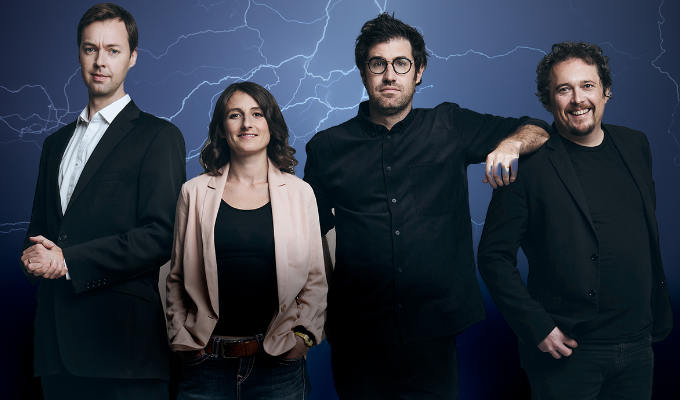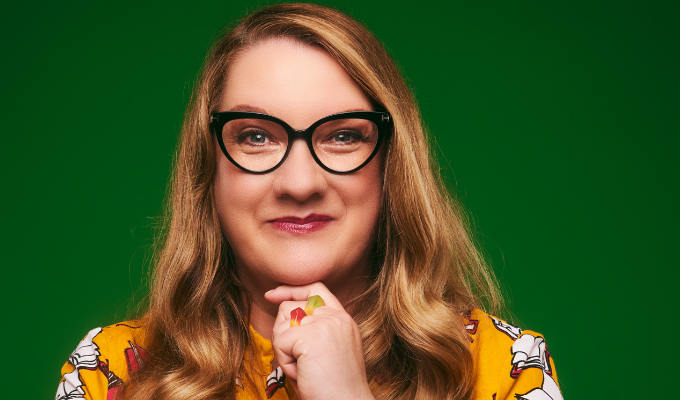
Every comedian should do seven days in Edinburgh, max
More ideas to fix the Fringe from Jim Judges and enny Shakes
 The consensus is that the Edinburgh Fringe is at breaking point, having grown so big that costs – especially for accommodation – have skyrocketed, pricing out all but those with the deepest pockets. We've been asking participants if they have any ideas to make the festival better...
The consensus is that the Edinburgh Fringe is at breaking point, having grown so big that costs – especially for accommodation – have skyrocketed, pricing out all but those with the deepest pockets. We've been asking participants if they have any ideas to make the festival better...
Jim Judges
Do many shows truly warrant a full three-week run at the Fringe? For most performers, the fewer shows they do, the less money they lose. Therefore, we should support artists by establishing four to seven days as the maximum anyone should sensibly consider.
Firstly, the financial strain on performers is immense. By reducing the performance period to a more manageable timeframe, artists can significantly cut down on their living expenses, which is crucial given the limited budgets most artists operate within. This reduction will also decrease demand across the three weeks, naturally stabilising rental prices in Edinburgh in August.
Moreover, artists can focus their energy and resources on fewer shows, ensuring each performance is of the highest standard. This not only benefits the performers but also enhances the audience's experience, making the Fringe a more memorable and worthwhile festival for everyone involved.
The current expectation for a three-week run creates an inequitable environment where only those with substantial financial backing can participate. This excludes many talented artists who cannot afford the high costs associated with a long stay. By standardising a shorter performance period, we democratise the opportunity to participate in the Fringe, opening the doors to a wider, more diverse range of voices and creative expressions.
Another critical point is the mental and physical toll on performers. Three weeks of daily performances can be incredibly exhausting, leading to burnout and negatively impacting the quality of the shows. A shorter run allows artists to maintain their well-being, ensuring they can perform at their best and continue to be creative long after the festival ends.
In conclusion, by adopting a more sustainable model that limits runs to four to seven days, we can ensure the Edinburgh Fringe remains a vibrant, inclusive, and artist-friendly festival. This approach benefits not only the artists but also the audiences and the festival as a whole, fostering a more diverse and high-quality range of performances.
• Jim Judges will be performing Accidental Pop: Now That's What I Call Safety! in the guise of his alter-ego Ian Crawford for just six days, August 12 to 17, at Paradise in Augustines. He is also a part-time researcher at the University of Kent, specialising in stand-up character comedy.
Benny Shakes
The Edinburgh Fringe is an incredible festival that celebrates creativity and diversity, but like any large-scale event, it has its challenges—especially for those of us with disabilities. Ideally, we would love every venue to be fully accessible, but realistically, making such changes would require rebuilding large parts of Edinburgh itself due to its historic nature.
While advocating for better accessibility remains important, I propose another approach to enhance the Fringe experience for all participant, creating a supportive creative network, fostering a stronger sense of community and mutual support among performers.
I envision a collaborative partnership where comedians and artists contribute a monthly fee into a shared fund. This fund would serve several purposes:
- Promotion: A collective marketing effort can significantly boost visibility for smaller acts. Pooling resources allows for larger, more impactful promotional campaigns that individual performers might not afford on their own.
- Mental health support: The pressures of the Fringe can be immense, leading to burnout and stress. This fund could provide access to mental health resources and counselling services, ensuring that artists have the support they need to thrive during the festival.
- Accommodation assistance: One of the biggest challenges at the Fringe is the high cost of accommodation. By collectively saving throughout the year, this fund could help subsidise housing costs for participating artists, making it more affordable to attend the festival.
- Workshops and mentoring: This would help artists hone their skills and navigate the complexities of the festival. Established performers could share their insights and strategies with newcomers, fostering a spirit of learning and growth.
In an industry often marked by fierce competition, fostering a sense of camaraderie can be transformative. Over the past five years as an artist, I've learned that support networks are crucial in achieving long-term goals. Yes, the festival provides mentoring and groups for support, but if we all helped each other more, we would all have a much better experience. Encouraging artists to collaborate, share resources, and lift each other up can create a more positive and sustainable festival environment.
If such a system were in place, I believe many artists would eagerly participate. It’s not just about surviving the Fringe but thriving and creating an environment where everyone has the opportunity to shine. By focusing on community, support and accessibility, we can make the Fringe a more inclusive and enriching experience for all involved.
• Benny Shakes: Respect is at Laughing Horse @ Bar 50 at 8.30pm. He’s also part of Disabled Cants at the same venue and Blue Badge Bunch at Pleasance Courtyard.
Published: 26 Jul 2024







